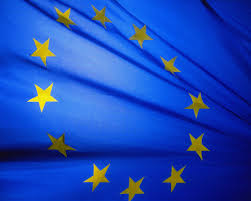 The European Union has expanded considerably since its inception as the European Economic Community in 1957. At that time it had just 6 members: Belgium, Germany, France, Italy, Luxembourg, and The Netherlands. Today it has 28 members, including 15 that have joined since 2000: Cyprus, the Czech Republic, Estonia, Hungary, Latvia, Lithuania, Malta, Poland, Slovakia, and Slovenia in 2004; Bulgaria and Romania in 2007; and Croatia in 2013.
The European Union has expanded considerably since its inception as the European Economic Community in 1957. At that time it had just 6 members: Belgium, Germany, France, Italy, Luxembourg, and The Netherlands. Today it has 28 members, including 15 that have joined since 2000: Cyprus, the Czech Republic, Estonia, Hungary, Latvia, Lithuania, Malta, Poland, Slovakia, and Slovenia in 2004; Bulgaria and Romania in 2007; and Croatia in 2013.
One of the criticisms to which the EU has been subjected, at least in the UK (and I presume other Western European countries as well), is that Eastern European countries should not have been admitted when the disparities of income between the economies of Western and Eastern Europe were still so great. The reason being that free movement of labour between member states (one the EU’s four freedoms) permitted large-scale migration from East to West, which is alleged to have had impacts such as bidding down the wages of low-skilled workers, and increasing crime. As the anti-immigration think-tank MigrationWatch writes:
The principle of free movement was established decades ago when what is now the European Union was a much smaller group of countries with similar levels of wealth. Today the European Union is a Union of 28 hugely different countries with a significant wealth disparity between the richest and poorest countries… This creates a massive incentive to migrate from poorer countries to wealthier countries; an incentive that did not exist when the Treaty of Rome was signed and the principle of free movement established in 1950s.
Large-scale migration from East to West has of course been accompanied by the rise of eurosceptic parties in many Western European countries: UKIP in the UK; Alternative for Deutschland in Germany; the National Front in France; the Party for Freedom in the Netherlands; the Sweden Democrats in Sweden; and the Danish People’s Party in Denmark. The rise of such parties has been particularly pronounced since the Great Recession and the start of the (ongoing) European Debt Crisis, which suggests that economic hardship stokes nationalist sentiment.
I investigated whether Europeans tend to be less sanguine about poorer countries being admitted to the European Union, using data from the Eurobarometer survey. In several waves of the survey, respondents in all existing member states were asked to say, for each of a number of prospective member states, whether they would be in favour or against that country “becoming part of the European Union in the future”. For the sake of brevity, I analyse data from just the 1996 wave, where 24 prospective member states were mentioned, and the 2008 wave, the most recent wave where the question was posed.
In the 1996 wave, the average percentages “in favour” and “against” each prospective member state’s admission to the EU were reported for the EU-15 as a whole, while in the 2008 wave they were reported for the EU-27 as a whole. I calculated the balance of opinion corresponding to each prospective member state as simply the percentage “in favour” minus the percentage “against”. I then examined the association between balance of opinion and log GDP per capita, taken from the World Bank.
The first chart (below) plots balance of opinion against log GDP per capita for the 1996 wave. The correlation is strong and positive (r = .83, p < 0.001, n = 24), indicating that Europeans in 1996 were indeed less sanguine about poorer countries being admitted to the EU. For example, the proportion of Europeans who were in favour of Switzerland (one of the richest countries in Europe) being admitted was nearly 60 percentage-points higher than the proportion who were opposed. By contrast, the proportion who were in favour of Albania (one of the poorest countries in Europe) being admitted was almost 25 percentage-points lower than the proportion who were opposed.
The second chart (below) displays the relationship between balance of opinion and log GDP per capita for the 2008 wave. Once again, the correlation is strong and positive (r = .93, p < 0.001, n = 12), confirming that Europeans in 2008 were less sanguine about poorer countries being admitted to the EU.
These results are consistent with the notion that Europeans, particularly less-skilled individuals living in Western European countries, are disproportionately concerned about the socio-economic impacts of immigration from poorer European countries. It is of course possible, however, that it is not low income per se to which Europeans object, but some other factor that happens to be correlated with low income (such as a country’s religion or human rights record).
Given the small sample of countries, it is not really feasible to carry out a regression analysis with multiple competing predictors. Yet there is some suggestive evidence from the 1997 wave that low income might not be the relevant factor. Respondents were asked to state, for each of eight separate criteria, how important that criterion was in deciding “whether a particular country should join the European Union”. Interestingly, “economic development” was deemed the second least important on average, while “human rights” was deemed the most important, followed closely by “fighting crime and drugs” and “protecting the environment”.










1 Comment